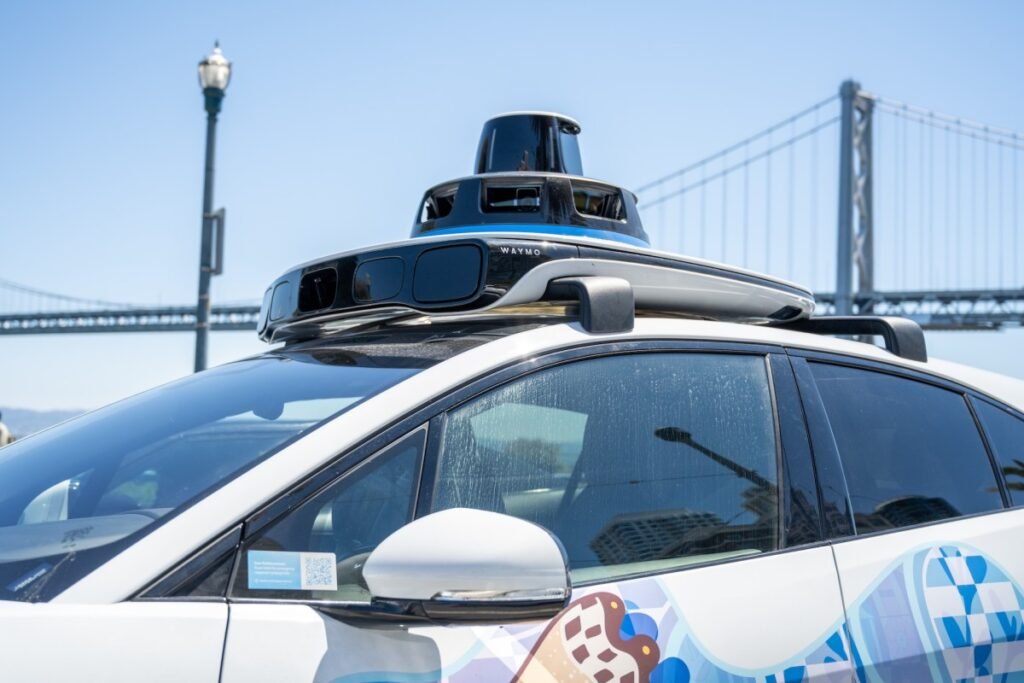Welcome back to JS Mobility, your go-to source for all things related to the future of transportation. If you want to receive our updates directly in your inbox, simply sign up for free by clicking on JS Mobility!
Around seven or eight years ago, the concept of “the race to build autonomous vehicles” was a prevalent topic in the business tech news sphere. Many industry insiders referred to the commercialization of autonomous vehicle technology as a competition. However, over time, it has become evident that this journey is more of a long, winding road rather than a simple race track. The development and validation of this technology require a significant effort to prove its functionality and profitability, making it more of an internal struggle with high stakes rather than a race against external competitors.
In the realm of autonomous technology, particularly in the realm of robotaxis, there are specific battlegrounds where companies are vying for dominance. Airports and public transit systems have emerged as crucial arenas for showcasing the capabilities of autonomous vehicles.
Airports played a pivotal role in the rise of ride-hailing companies, and now they are equally essential for robotaxis. Companies like Waymo have started offering rides to and from airports like Phoenix’s Sky Harbor Airport. Recently, Waymo received approval to test its autonomous vehicles at San Francisco International Airport, indicating its push towards launching a commercial service in the area. Additionally, Tesla is also making efforts to provide ride-hail services to airports, intensifying the competition in this space.
In another strategic move, Waymo has partnered with transit software company Via to integrate robotaxis into public transit networks. This partnership will allow government agencies using Via’s software for public transit to incorporate Waymo’s autonomous vehicles into their fleets. The initial implementation will take place in Chandler, a suburb of Phoenix, through the Chandler Flex on-demand shared vehicle service.
While these initiatives may not yield immediate financial gains for Waymo, they represent crucial steps in expanding the reach and adoption of autonomous technology. Through partnerships like the one with Via, Waymo aims to establish a significant presence in multiple cities, paving the way for widespread integration of robotaxis into public transportation systems.
In the realm of deals and investments, Wayve has been making waves with its comprehensive approach to automated driving technology. The company is currently in talks with Nvidia for a potential $500 million strategic investment in its upcoming Series D round, further solidifying its position in the market.
Other notable deals include Divergent Technologies’ shift towards defense contracts, EV Realty’s focus on semitruck charging infrastructure expansion, Moove’s efforts to raise substantial funding for its vehicle financing platform, and XL Batteries’ success in securing funding for its energy storage solutions.
As the automotive industry continues to evolve, Hyundai Motor Group is ramping up its operations in North America, aiming to increase sales and revenue through investments in electrified vehicles and production capacity expansions. Rivian has commenced the construction of its factory near Atlanta, while Stellantis has decided to rebrand its electric truck offerings to better align with market demand.
In response to safety concerns, Tesla has announced plans to redesign its door handles to enhance user safety and prevent potential trapping incidents. The company has also issued a recall for Powerwall 2 home batteries in Australia following reports of fire-related incidents.
Looking ahead, Uber is set to test drone deliveries for Uber Eats in select U.S. markets, Waymo is planning to launch a commercial robotaxi service in Nashville in 2026, and a partnership with Lyft will further extend its reach.
Lastly, don’t forget to mark your calendars for JS Disrupt 2025, where Wayve’s CEO Alex Kendall will be speaking on stage. This event, scheduled for October 27-29 in San Francisco, promises to bring together industry leaders and innovators for insightful discussions on the future of technology and transportation.
For more updates and insights, stay tuned to JS Mobility.

